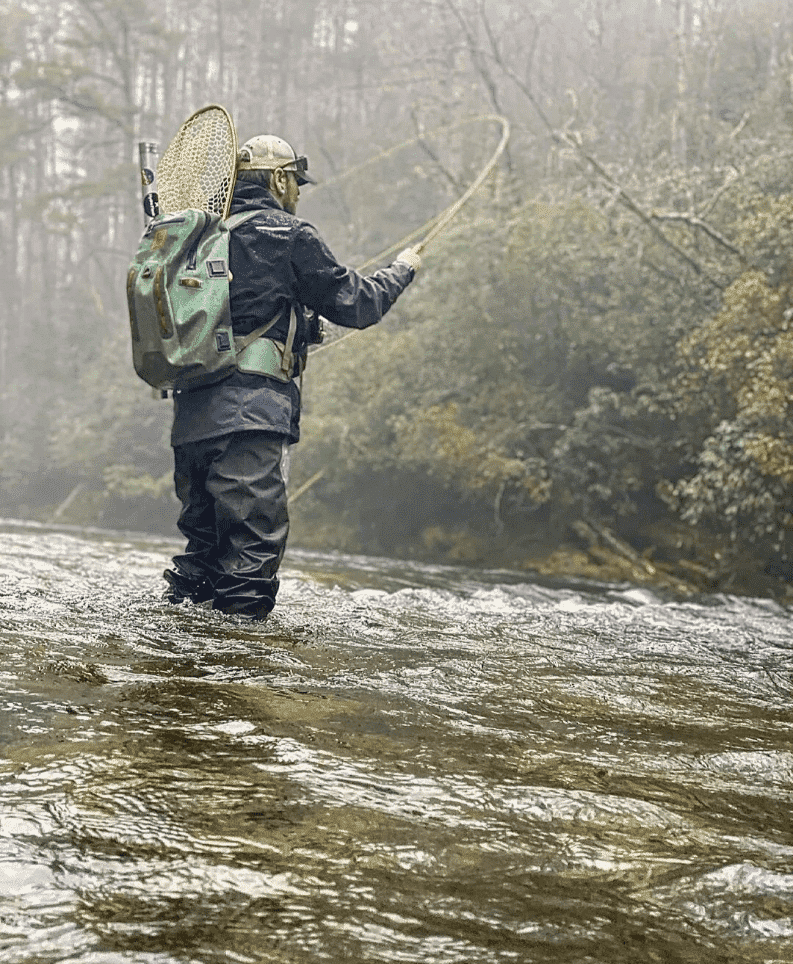Fly fishing offers a unique blend of skill and serenity, but for many anglers, catching fish consistently can be a daunting task. Your success on the water can be greatly increased by knowing a few important tips, regardless of your level of experience or desire to improve. If you’re planning a trip for fly fishing South Carolina, or anywhere else, these insights are sure to help you reel in more fish.
Fly fishing in South Carolina offers a unique blend of stunning landscapes and diverse waterways, from the picturesque rivers of the Blue Ridge Mountains to the tranquil salt marshes along the coast. Anglers can target a variety of species, including trout in the cool mountain streams and redfish in the tidal flats, making it a year-round destination for fishing enthusiasts. With its rich ecosystem and vibrant wildlife, fly fishing here not only tests skills but also provides a serene escape into nature.
From selecting the right fly pattern to mastering casting techniques, these expert tips will have you well on your way to catching more fish during your fly fishing adventures.
1. Choose the Right Fly Pattern
Your choice of fly pattern can make or break your fly fishing experience. Flies are designed to mimic a variety of insects, and using the correct fly for the environment can significantly increase your chances of success. Pay attention to local hatch conditions and the types of insects prevalent in the area you’re fishing. Match the hatch by selecting flies that resemble the insects fish are feeding on at the time. Doing some groundwork, like scouting local insect activity, can help you make an informed decision and increase your odds of catching fish.
Additionally, consider the size and color of your flies. Fish can be quite picky, and minor adjustments in the size or color of your fly can make a huge difference. Experimentation is key, so bring a variety of patterns, and don’t be afraid to switch things up if you’re not having any luck.
2. Master Your Casting Technique
The ability to cast effectively is fundamental to fly fishing. A well-executed cast can place the fly in the optimal position without startling the fish. Focus on improving your rhythm and accuracy through regular practice. Start with the basics of casting and gradually work your way up to more advanced techniques. Experiment with different techniques, such as the roll cast or reach cast, to tackle various conditions and obstacles that you may encounter on the water.
Practice Different Casting Techniques
Different situations call for different casting techniques. For example, the double haul can add distance to your cast, while the reach cast allows for better placement in challenging conditions. Practicing these techniques can help you become a more versatile angler. Consistent practice and possibly even learning from instructional videos or a casting workshop can significantly enhance your skills.
3. Understand Fish Behavior
Knowing where and when fish are likely to be in specific locations can make a substantial difference. Fish tend to feed in certain areas like riffles and pools and run at different times of the day. Observing natural cues such as rising fish or surface swirls can provide invaluable hints. Awareness of fish feeding patterns allows you to position yourself in the right spot at the right time.
Additionally, understanding the lifecycle of various aquatic insects can help you predict when and where fish are feeding. For instance, many fish feed on emerging insects in the morning and evening. Learning about the specific habits of the fish species you are targeting can give you a significant advantage.
4. Use the Right Equipment
The importance of using the proper equipment cannot be overstated. Investing in quality gear that’s suited to the type of water you’re fishing can make your outing more productive and enjoyable. Essentials include a reliable rod, reel, and line, along with well-fitting waders and boots for wading through streams and rivers. Make sure to balance your rod and reel properly to ensure smooth casting and retrieving.
Maintaining your gear in good condition also plays a critical role in your overall success. Regularly clean and inspect your equipment to ensure it is in top working order. Replace worn leaders and tippets, and make sure your flies are sharp and well-tied. Properly cared-for equipment can significantly enhance your performance on the water.
5. Be Patient and Persistent
Patience and persistence are key virtues in fly fishing. It’s common to have long stretches without a bite, but staying positive and making adjustments as needed can lead to success. Sometimes, simply changing your location can make a difference. Other times, it might be necessary to try different fly patterns or casting techniques. Fly fishing is as much about enjoying nature and the experience as it is about catching fish.
The beauty of fly fishing is that it’s a lifelong learning process. Every trip offers new challenges and opportunities to refine your skills. Embrace the journey, and remember that patience often leads to rewarding experiences and memorable catches.
Bonus Tip: Learn from the Experts
Taking advantage of expert knowledge can expedite your learning curve. Whether it’s participating in a fly fishing course or fishing with seasoned anglers, gaining insights from those with more experience can be highly beneficial. Expert advice can provide you with new techniques and strategies that you might not have considered. There are plenty of resources, from online tutorials to in-depth articles, that can offer valuable tips and techniques.
Don’t hesitate to seek out professional guides or attend fly fishing workshops. These opportunities can provide hands-on experience and personalized feedback, which are invaluable for improving your skills. Learning from the experts can shorten your learning curve and help you become a more proficient angler.
Conclusion
Fly fishing is a rewarding endeavor that combines skill and natural beauty. By focusing on these top tips—selecting the right fly pattern, mastering your casting technique, understanding fish behavior, using the right equipment, and remaining patient and persistent—you can increase your chances of making every fishing trip a successful one. Enjoy your time on the water, and happy fishing!




No Comment